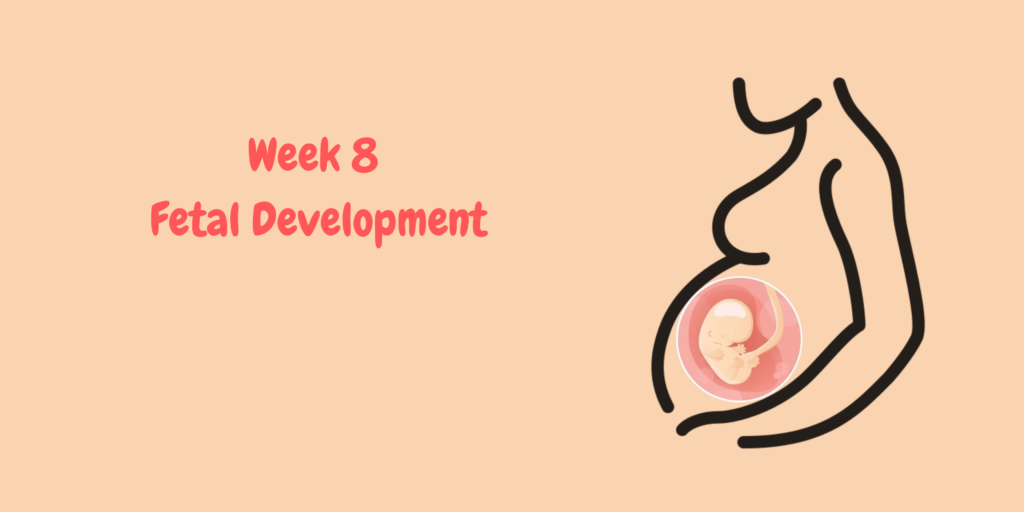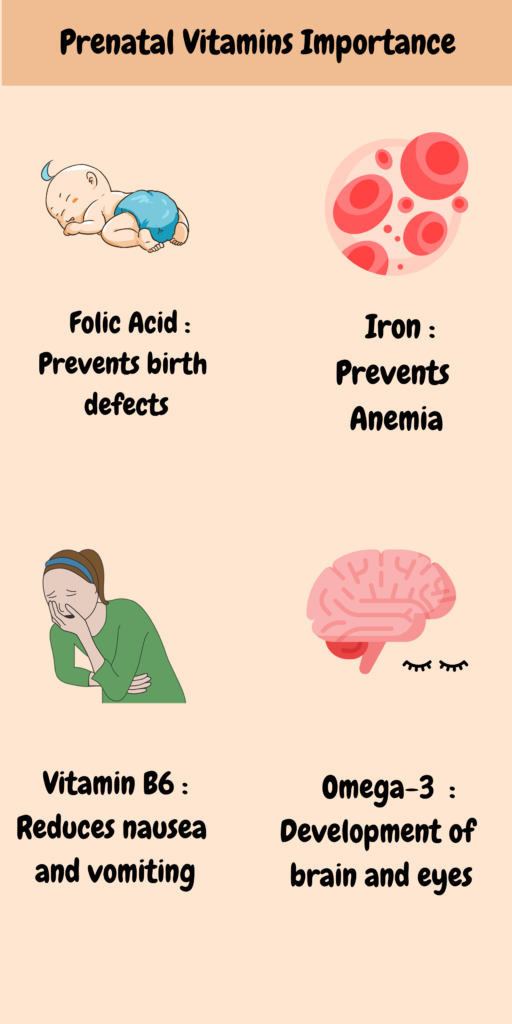2nd Month of Pregnancy (5-8 weeks)

Congratulations, now you are in the 2nd month of pregnancy. You might be feeling excited, overwhelmed and worried, but this is all what pregnancy is all about. In the second month of pregnancy (5-8 weeks), significant growth and development occur in the embryo.
The heart starts beating, and essential structures like the brain, spinal cord, and major organs begin to form. Many women experience common symptoms such as nausea, fatigue, and mood swings due to hormonal changes. It’s also a critical time for prenatal care; women are encouraged to start taking prenatal vitamins and maintain a healthy lifestyle to support the developing fetus. Regular check-ups with a healthcare provider are important to monitor progress and address any concerns.
On this page
1. Fetal Development

During the second month of pregnancy (weeks 5 to 8), fetal development progresses rapidly. Key milestones include:
- Heart Development: The heart begins to beat around week 6 and can be detected via ultrasound. It pumps blood to the developing tissues.
- Organ Formation: Major organs such as the brain, lungs, liver, and kidneys start to form. The neural tube, which will develop into the brain and spinal cord, closes during this time.
- Limb Buds: Small limb buds appear, which will eventually develop into arms and legs. By the end of this month, fingers and toes begin to form.
- Facial Features: Early facial structures, including the eyes and nostrils, start to develop. The beginnings of the ears and mouth are also forming.
Overall, this month is crucial for the foundational development of the fetus, setting the stage for growth in the coming months.
2. Size and Weight of Baby
By the end of the second month of pregnancy (around week 8), the embryo typically measures about 1 to 1.5 inches long (2.5 to 3.8 cm) and weighs around 0.07 ounces (approximately 2 grams). At this stage, the developing baby is still quite small, resembling a tiny bean.
3. Your body changes
During the second month of pregnancy, significant changes in your body may not be visibly apparent. You will not be able to notice your baby bump as it’s too early. However, you may notice increased sensitivity and fullness in your breasts. A portion of this weight gain, approximately two pounds, is likely to be in your breasts. Throughout the first trimester, an average weight gain of one to five pounds is expected.
During this month of pregnancy, your body undergoes several notable changes as it adapts to support the developing embryo:
- Hormonal Shifts: Increased levels of hormones, particularly human chorionic gonadotropin (HCG), estrogen, and progesterone, lead to various physical and emotional changes.
- Nausea and Fatigue: Many women experience morning sickness, characterized by nausea and vomiting, as well as increased fatigue due to hormonal fluctuations.
- Breast Changes: Breasts may become tender, swollen, and more sensitive. The areolas may darken, and veins may become more visible.
- Frequent Urination: As the uterus expands and hormonal changes occur, many women notice an increase in the frequency of urination.
- Mood Swings: Emotional changes can occur due to hormonal fluctuations, leading to mood swings or heightened emotions.
- Appetite Changes: Some women may experience cravings or aversions to certain foods.
- Bloating: You might feel more bloated or experience changes in digestion due to hormonal effects.
These changes can vary widely from person to person.
4. Prenatal vitamins
During the second month of pregnancy, taking prenatal vitamins is crucial for supporting the health of both the mother and the developing baby. Key components of prenatal vitamins typically include:

- Folic Acid: Essential for preventing neural tube defects and supporting the development of the baby’s brain and spinal cord. The recommended amount is usually 400 to 800 micrograms daily.
- Iron: Important for increasing blood volume and preventing anemia. Iron helps transport oxygen to the baby.
- DHA: An omega-3 fatty acid that supports brain and eye development in the fetus
- Vitamins B6 : Help with energy metabolism and immune
Taking these vitamins can help ensure that both the mother and baby receive essential nutrients during this critical stage of development. It’s always best to consult with a healthcare provider for personalized recommendations on prenatal vitamins.
5. Emergency symptoms of 2nd month pregnancy
If you experience any of the following symptoms, you should seek medical attention immediately:
- Severe Abdominal Pain: While mild cramping can be normal, sudden, intense pain could indicate an ectopic pregnancy or other serious issues.
- Heavy Bleeding: Light spotting can be common, but heavy bleeding or passing clots may signal a miscarriage or other complications.
- Dizziness or Fainting: This can indicate low blood pressure or anemia, requiring prompt evaluation.
- Severe Headaches: While headaches can be common due to hormonal changes, severe or persistent headaches that don’t respond to typical relief methods should be assessed.
- Painful Urination or Blood in Urine: These symptoms may indicate a urinary tract infection or other issues.
- Signs of Infection: Fever, chills, or unusual discharge could indicate an infection that requires treatment.

